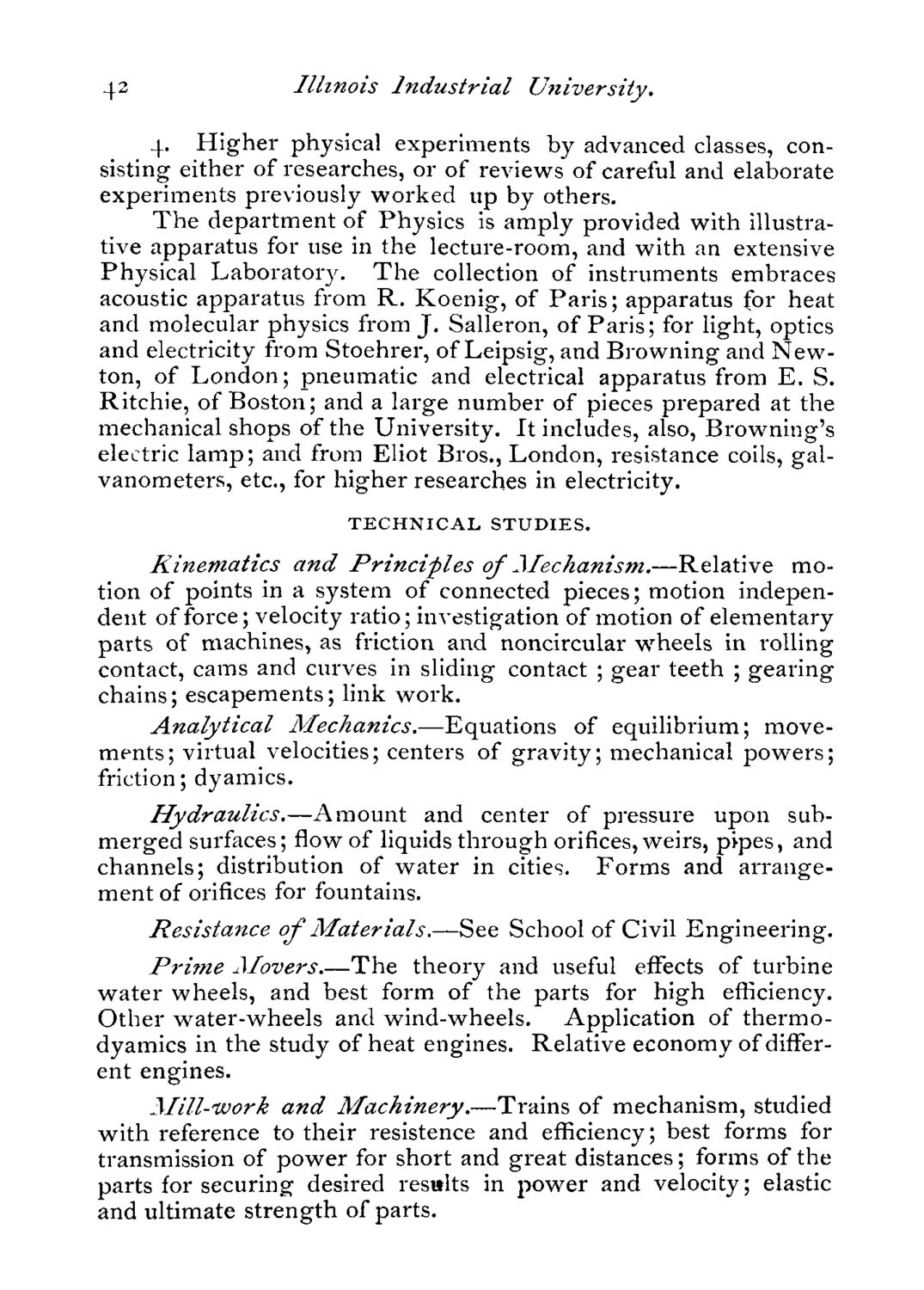| |
| |
Caption: Course Catalog - 1880-1881
This is a reduced-resolution page image for fast online browsing.

EXTRACTED TEXT FROM PAGE:
42 Illinois Industrial University. 4. Higher physical experiments by advanced classes, consisting either of researches, or of reviews of careful and elaborate experiments previously worked up by others. The department of Physics is amply provided with illustrative apparatus for use in the lecture-room, and with an extensive Physical Laboratory. The collection of instruments embraces acoustic apparatus from R. Koenig, of Paris; apparatus for heat and molecular physics from J. Salleron, of Paris; for light, optics and electricity from Stoehrer, of Leipsig, and Browning and Newton, of London; pneumatic and electrical apparatus from E. S. Ritchie, of Boston; and a large number of pieces prepared at the mechanical shops of the University. It includes, also, Browning's electric lamp; and from Eliot Bros., London, resistance coils, galvanometers, etc., for higher researches in electricity. TECHNICAL STUDIES. Kinematics and Principles of Mechanism.—Relative motion of points in a system of connected pieces; motion independent of force; velocity ratio; investigation of motion of elementary parts of machines, as friction and noncircular wheels in rolling contact, cams and curves in sliding contact ; gear teeth ; gearing chains; escapements; link work. Analytical Mechanics.—Equations of equilibrium; movements; virtual velocities; centers of gravity; mechanical powers; friction; dyamics. Hydraulics.—Amount and center of pressure upon submerged surfaces; flow of liquids through orifices, weirs, p>pes, and channels; distribution of water in cities. Forms and arrangement of orifices for fountains. Resistance of Materials.—See School of Civil Engineering. Prime Movers The theory and useful effects of turbine water wheels, and best form of the parts for high efficiency. Other water-wheels and wind-wheels. Application of thermodyamics in the study of heat engines. Relative economy of different engines. Mill-work and Machinery.—Trains of mechanism, studied with reference to their resistence and efficiency; best forms for transmission of power for short and great distances; forms of the parts for securing desired results in power and velocity; elastic and ultimate strength of parts.
| |